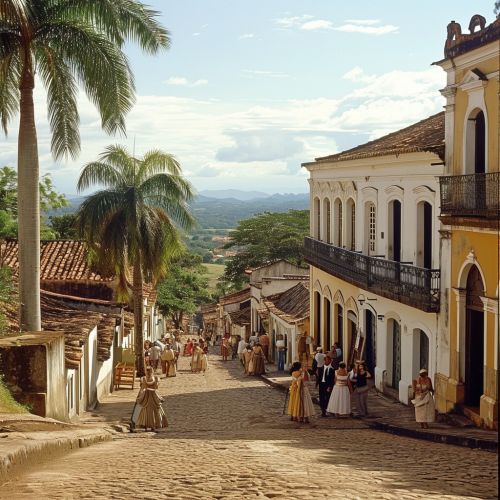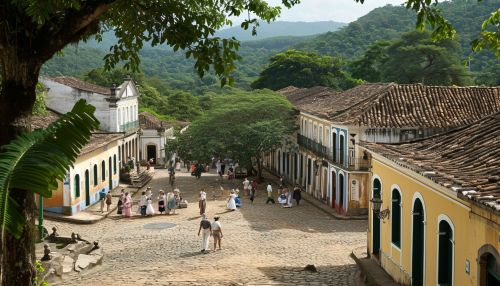Colonial Brazil
Discovery and Initial Colonization
The discovery of Brazil by Portuguese explorers in 1500 marked the beginning of the colonial period, which lasted until 1822. The Portuguese Crown had a direct influence over the colonization process, with the establishment of a hereditary captaincies system and the implementation of a royal governorship. The early years of colonization were marked by a struggle for control between the Portuguese and the indigenous Tupi-Guarani tribes, with the Portuguese ultimately gaining the upper hand.


Economic Development
The economy of Colonial Brazil was largely based on sugar production, which was heavily reliant on slave labor. The sugar industry was the backbone of the Brazilian economy for over two centuries, and it had a profound impact on the social and economic structure of the colony. In the late 17th century, the discovery of gold and diamonds in the interior regions led to a shift in the economic focus, sparking a gold rush and leading to the development of new towns and cities.
Society and Culture
The society of Colonial Brazil was characterized by a rigid social hierarchy, with the Portuguese colonists at the top and the African slaves at the bottom. The indigenous population was largely marginalized, although they played a significant role in the early years of colonization. The culture of Colonial Brazil was heavily influenced by Portuguese, African, and indigenous traditions, resulting in a unique blend of cultural elements. The Catholic Church played a significant role in the social and cultural life of the colony, with the establishment of numerous churches, missions, and religious orders.
End of the Colonial Period
The end of the colonial period was marked by a series of political and social changes, culminating in the Brazilian Independence in 1822. The process of independence was largely peaceful, with the Portuguese Crown recognizing the independence of Brazil in 1825. The end of the colonial period marked the beginning of a new era in Brazilian history, with the establishment of the Brazilian Empire and the subsequent development of a modern nation-state.
